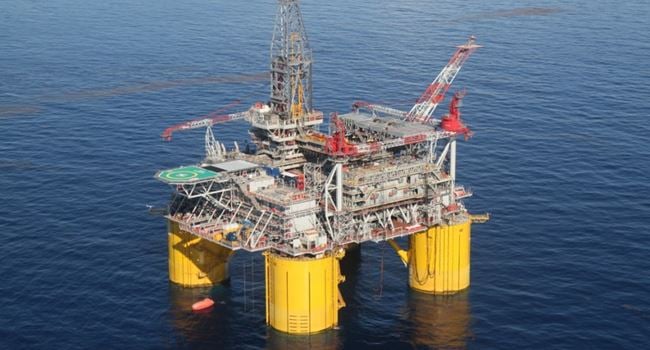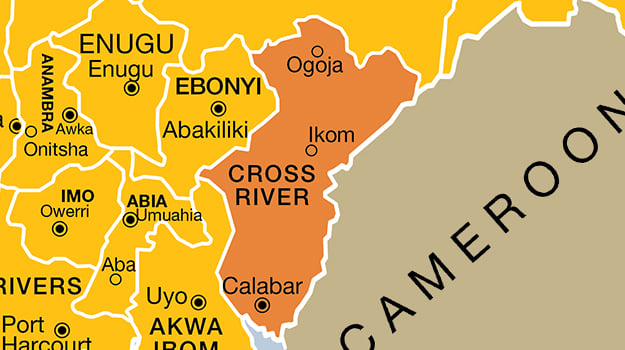This photo is not GHL's oil rig. It's only used for illustrative purposes.
Nigeria recorded a shortfall in crude oil production totalling 6.9 million barrels per day (bpd) between January and November, 2022.
This is contained in reports obtained from the Organisation of Petroleum Exporting Countries (OPEC) and the Nigerian Upstream Petroleum Regulatory Commission (NUPRC).
OPEC sets production quotas for member countries at its discretion to ensure a balanced global oil market.
Even though the oil cartel does not moderate the volume of condensate produced by its member countries, it regularly adjusts production quotas.
Advertisement
While its latest production share is 1.8 million bpd for Nigeria, the country fell short in its quota during the months under review, due to a myriad of sectoral challenges.
The federal government had recently said the country could not meet its OPEC quota as a result of oil theft.
Checks by TheCable Index found that the country’s oil production averaged 12.5 million bpd within 11 months — down from the required OPEC quota of 19.4 million bpd.
Advertisement
A breakdown showed that the country failed to meet its quota by 284,493 bpd in January, as it produced 1.39 million bpd.
In February, March and April, the country’s crude oil production averaged 1.25 million bpd, 1.24 million bpd, and 1.22 million bpd, respectively.
As a result, the country recorded a production shortfall of 443,214 bpd; 480,427 bpd; and 515,785 bpd, respectively.
Meanwhile, in May, June, and July, Nigeria produced 1.02 million bpd, 1.16 million bpd, and 1.08 million bpd — with a deficit of 728,629 bpd; 613,726 bpd; and 715,101 bpd, respectively.
Advertisement
Similarly, in August, September, October, and November, Nigeria also failed to meet its required quota by 853,606 bpd; 892,234 bpd; 811,515 bpd; and 556,396 bpd, respectively.
During this time, crude oil production averaged 972,394 bpd; 937,766 bpd; 1,014,485 bpd; and 1.18 million bpd, respectively.
Due to the country’s failure to optimally produce crude oil, it lost its position as Africa’s top crude oil producer for two consecutive months, regaining it when production improved in November, 2022.
Speaking on the issue, Temitope Omosuyi, investment strategist, Afrinvest Securities Ltd, told TheCable that a unique challenge Nigeria’s oil industry was faced with in 2022 was its failure to meet the OPEC quota when oil prices were high (above $100 a barrel).
Advertisement
The analyst believes that Nigeria may still not get the best from oil revenue even if it increases output as prices are expected to crash.
“For next year, what it actually means is that if we are now ramping up oil production, there may be a bit of challenge in terms of maximising oil revenue because oil prices are expected to decline and if we are looking at increasing production so as to maximise revenue, we may not be able to get the best from oil,” he said.
Advertisement
Add a comment






